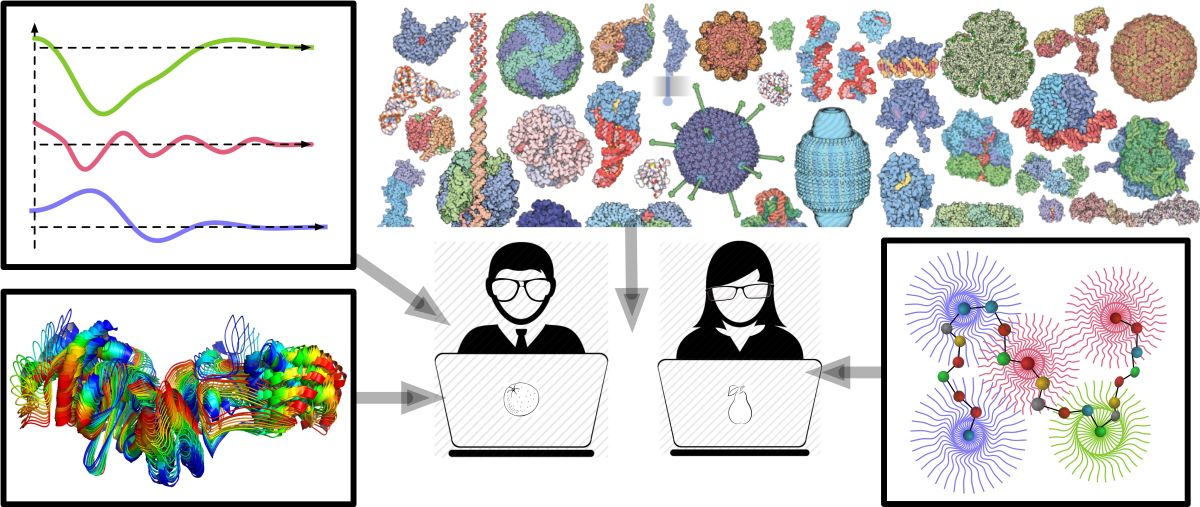Speaker
Description
Proteins can have very different architectures, generally involving a concatenation of relatively rigid domains and flexible regions. Indeed, many proteins in eukaryotes, prokaryotes and viruses are composed of several domains connected by linkers, and flexible tails are also frequently found at the termini of rigid domains. Besides, flexible loops connecting secondary structure elements within domains are omnipresent in proteins. All these types of flexible regions (linkers, tails and loops), in addition to fully flexible, intrinsically disordered proteins, play key functional roles, usually related to inter- or intramolecular interactions.
While the structure of rigid domains can be accurately determined using experimental methods or predictors such as AlphaFold2, the structural study of flexible regions remains a challenge. It requires computational methods for the generation of conformational ensemble models that are fitted or refined on the basis of experimental measurements. In recent years, we have developed several algorithms, based on fragment databases and robotics-inspired techniques, for the conformational sampling of flexible loops and intrinsically disordered regions. Building on this work, we propose a unified approach to sample conformations of proteins with complex architectures composed of rigid and flexible regions. Our approach integrates a multi-agent reinforcement learning technique to improve sampling performance while taking into account the specificities of each flexible/disoriented region of the protein. In addition to these generative models, we have developed statistical tools for the analysis and comparison of conformational ensembles of highly-flexible proteins.
| Submitting to: | Integrative Computational Biology workshop |
|---|

